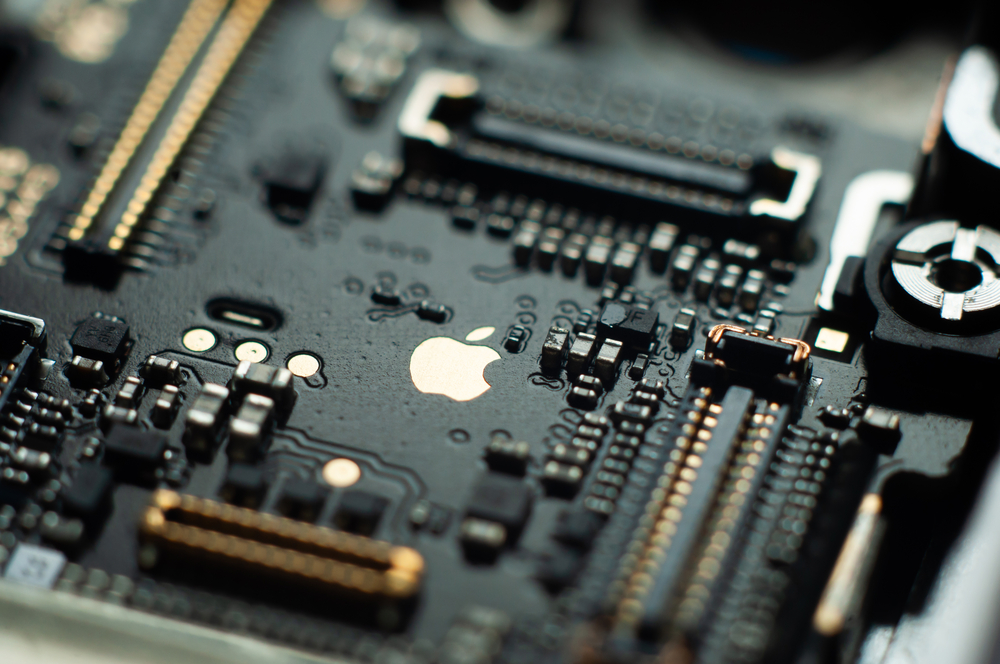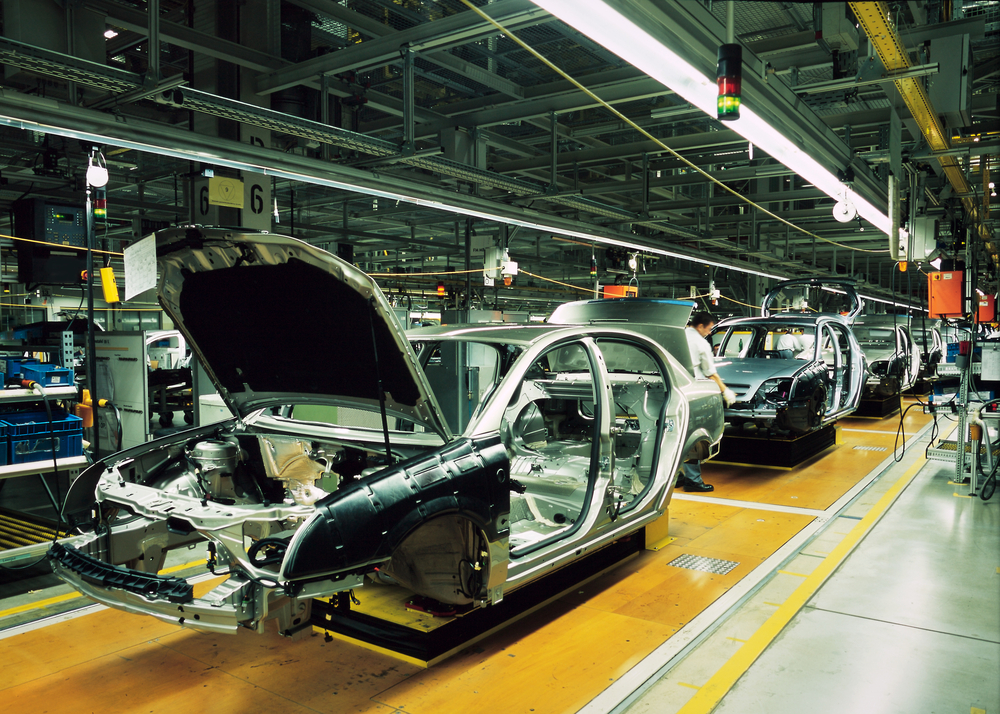They are small and inconspicuous, but semiconductors are the driving force behind almost every modern technology. Today, millions of products like cars, smartphones, game consoles, and microwaves rely on computer chips, also known as semiconductor chips. However, there aren’t enough semiconductor chips to meet current demand, causing many products to short supply.
Why are semiconductor chips important? Why is the world facing a shortage of semiconductor chips? Which industries are hard hit? Is the government doing anything to remedy the situation? We spent some time looking for answers to these questions and more.
Contents
- Why Are Semiconductor Chips Important?
- The Roots of the Global Chip Shortage
- The Role of Covid-19
- Poor Planning
- The Sanctions
- The Weather
- What Does the Global Chip Shortage Mean for Consumers?
- How Global Automakers Are Dealing With the Chip Shortage
- The US Government Response
- Until When Is the Chip Shortage Expected To Last?
Why Are Semiconductor Chips Important?
The Japanese multinational conglomerate, Hitachi, defines a semiconductor chip as “an electric circuit with many components such as transistors and wiring formed on a semiconductor wafer.” Adding that “An electronic device comprising numerous of these components is called ‘integrated circuit (IC).”
Semiconductor chips play an important role in controlling the flow of current in electronic equipment and devices. Some call the chip the brain of the electronic device.
In an attempt to show the importance of semiconductor chips, also referred to as microchips, integrated circuits, or simply chips, the Semiconductor Industry Association says, “Imagine life without electronic devices.” The association says such a life would have “no smartphones, radios, TVs, computers, video games, or advanced medical diagnostic equipment.”
An article published by the British Broadcasting Corporation (BBC) calls the semiconductor chip “The humble mineral that transformed the world.” Adding that, “The semiconductor chip has gone further than any other technology in connecting the world.”
The Roots of the Global Chip Shortage

As companies sent employees to work from home at the peak of Covid-19 infections in early 2020, supply chains started experiencing disruptions. Many people working from home needed new electronic devices. It looks like the industry did not prepare for this unprecedented demand, and shortages started to surface.
Even though the simple explanation is that more people require more electronic devices because they are working from home, some experts and analysts refuse to see this as the only reason.
The Role of Covid-19
Covid-19 is one of the reasons that industry commentators point to when they explain the global chip shortage. For instance, Daphne Leprince-Ringuet writes for ZDnet.com and explains that “As companies sent their staff back home to work remotely, PC and smartphone sales surged.”
Leprince-Ringuet adds that with very little to do at home, “people turned to new, chip-filled forms of entertainment to pass the time during months of lockdown, ranging from gaming to cryptocurrency mining.”
In an interview with TheVerge.com, Dr. Willy Shih, a professor at Harvard Business School, tells the story of how vehicle sales dropped drastically as Covid-19 spread across the world. This left automakers thinking they did not need all the chips they would otherwise have ordered, which reduced the production of chip manufacturers.
When the world started to open up as people were getting vaccinated, there was not enough capacity to meet demand.
Poor Planning
While it’s easy to blame factors we can’t control, like Covid 19, Esther Shein, writing for TechRepublic.com, quotes some experts who say that the global chip shortage results from poor planning.
Shein cites the program vice president of the semiconductor group at IDC (International Data Corporation), Mario Morales, who says that the industry failed to anticipate the changing industry needs.
Morales suggests that as automakers canceled orders in the second quarter of 2020, “many disgruntled suppliers found other markets that were still doing well despite the pandemic,” such as the cloud infrastructure providers.
The Sanctions
Another cause for global chip shortages is the hoarding of chips by companies in China in anticipation of the Trump government’s sanctions published by the BBC, Chris Baraniuk cites Koray Köse, an analyst at Gartner, who says that when the Trump government announced that it would prevent the sale of semiconductors and technology to Huawei, the Chinese technology giant started looking elsewhere. Köse adds that this saw “Chipmakers outside the US … quickly flooded with orders from the Chinese firm.”
Considering that 75% of the planet’s chips are manufactured in Asia, China was always bound to look elsewhere. So, when the US manufacturers started experiencing a shortage and looked east, they discovered that most of the chips were already in China.
The Weather
Semiconductor chip manufacturing requires enormous amounts of water. For example, NewScientist.com estimates that the Taiwan Semiconductor Manufacturing Company (TSMC) uses 156,000 tonnes of water daily. Therefore, the drought experienced in Taiwan at the beginning of this year hurt production.
Special Offer: Get $200 off your order!
Email [email protected] to get started!
What Does the Global Chip Shortage Mean for Consumers?

The global chip shortage is in the news because it has started affecting ordinary consumers. For instance, a July 2021 CNBC.com article reports that “Apple CEO Tim Cook warned silicon supply constraints would affect sales of the iPhone as well as other products like the iPad.”
The global chip shortage means that manufacturers of everyday products like cell phones and game consoles manufacture less. These supply shortages could result in certain products being more expensive.
Supply disruptions caused by the chip shortage could also mean waiting a little longer to take delivery of specific cars and devices. For instance, ConsumerReports.com says that “Some analysts predict a production shortfall of almost 8 million vehicles by the end of the year as the chip shortage drags on.”
Apart from the auto manufacturing industry, the chip shortage has affected manufacturers of gaming consoles. By mid-2021, video game consoles such as X-box and PS5 were in short supply.
The disruptions in-game console supplies have left some analysis like Adrian Covert, writing for Yahoo.com, asking, “Will the global chip shortage accelerate the death of video game consoles like PS5 and Xbox?” With regards to the answer to this question, only time will tell.
How Global Automakers Are Dealing With the Chip Shortage

One car could have between 50 and 150 chips, used for various applications, including controlling windows, power steering, and emergency braking systems. This shows that a modern car would not function without semiconductor chips.
If the chip shortage was initially only a concern, it seems to be escalating into a full-blown crisis. For instance, TheGuardian.com reports that Ford was forced to cancel shifts at some of its plants due to the chip shortage. According to the same source, the automobile manufacturer warned the market that its profits might plummet by up to $2.5bn in 2021.
TheGuardian.com also reports that Nissan was idling output at its plants in the US and Mexico, while General Motors had reported that its profits might be affected to the tune of $2bn.
While some car manufacturers are idling plants, others take more drastic measures, such as leaving out some high-end optional features.
CNBC.com reports that “Nissan is reportedly leaving navigation systems out of cars that would normally have them, while Ram Trucks has stopped equipping its 1,500 pickups with a standard ‘intelligent’ rearview mirror that monitors for blind spots.”
CNBC.com also reports that “Renault is no longer putting an oversized digital screen behind the steering wheel of certain models.”
The US Government Response
Concerned about the escalating global chip shortage affecting 169 industries in the US, the White House called a virtual summit attended by CEOs and senior leaders from industries affected by the semiconductor shortage.
In a brief statement, the White House acknowledges that “The semiconductor shortage, which is impacting American workers and families right now, is a top and immediate priority for the President and his senior-most advisors on economic and national security.”
The brief statement from the White House summit reports that the representatives from the government and the private sector agreed that it required more transparency in the semiconductor supply chain and that it should devise ways to improve demand forecasting. As expected, the meeting also called for additional resources to increase production capacity.
Until When Is the Chip Shortage Expected To Last?
Anyone hoping that it will resolve the chip shortage problem soon will be disappointed when they read the views of industry experts and analysts. While some believe that things are getting better, others believe that the situation is getting worse.
In an article published by Fortune.com, Eamon Barrett reports that “Semiconductor manufacturers are already adding more capacity to meet future projections, and executives on the supply side of semiconductors have begun to speculate when the shortage … will ease.”
However, other analysts believe solving the global chip shortage by increasing capacity is easier said than done. If you hear the amounts required to construct a chip manufacturing plant, you may agree with those that say the shortage is nowhere near over.
The US government has been working closely with TSMC on a project that includes investing $12bn in building a chip factory in the country. This shows just how much money is required to increase capacity.
Even though there doesn’t seem to be a consensus regarding how much more time the world will have to weather the semiconductor shortage storm, the good news is that the problem is rapidly attracting attention. This is awakening the world to the need to increase capacity and ensure that future shortages are averted.
Special Offer: Get $200 off your order!
Email [email protected] to get started!






